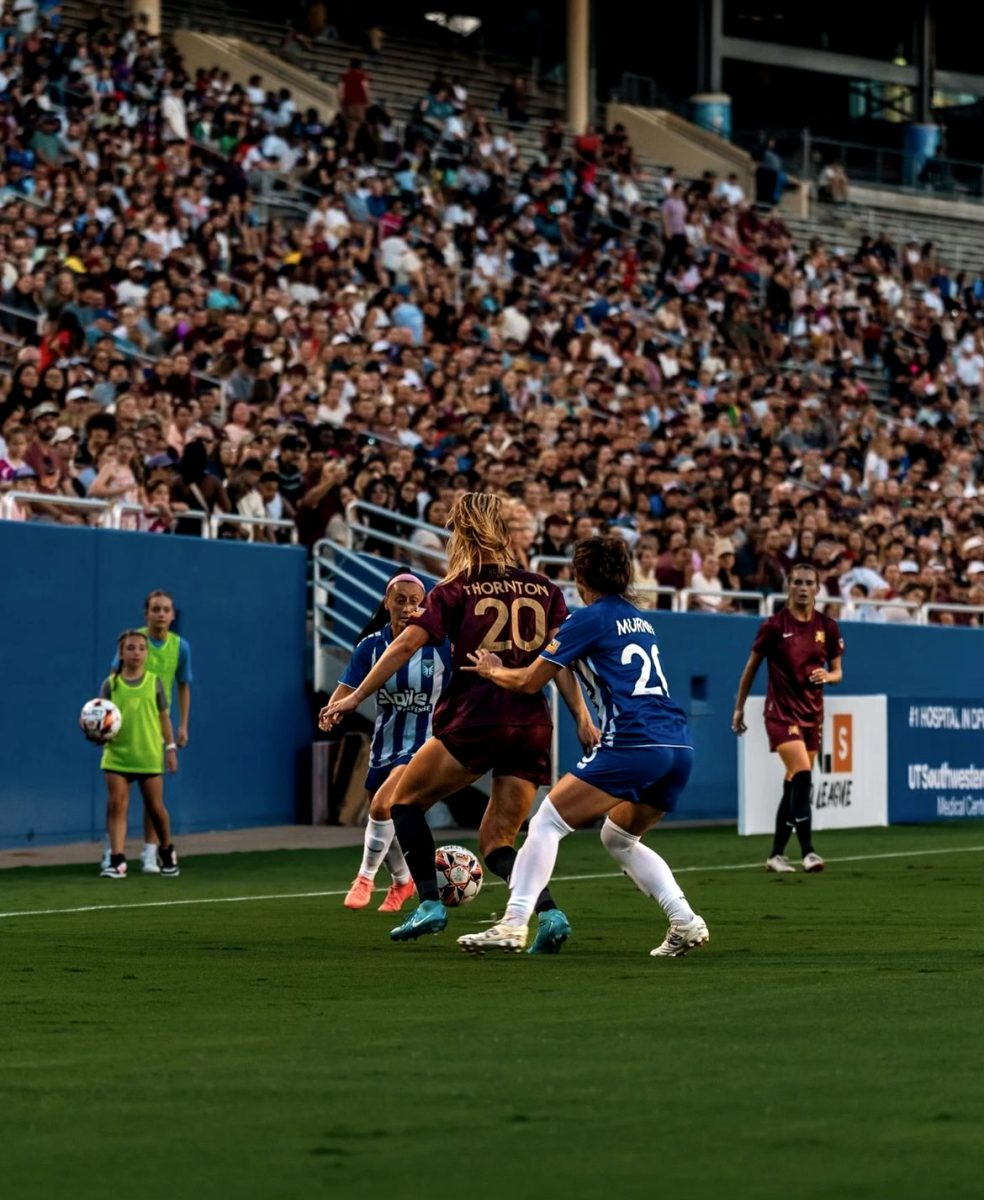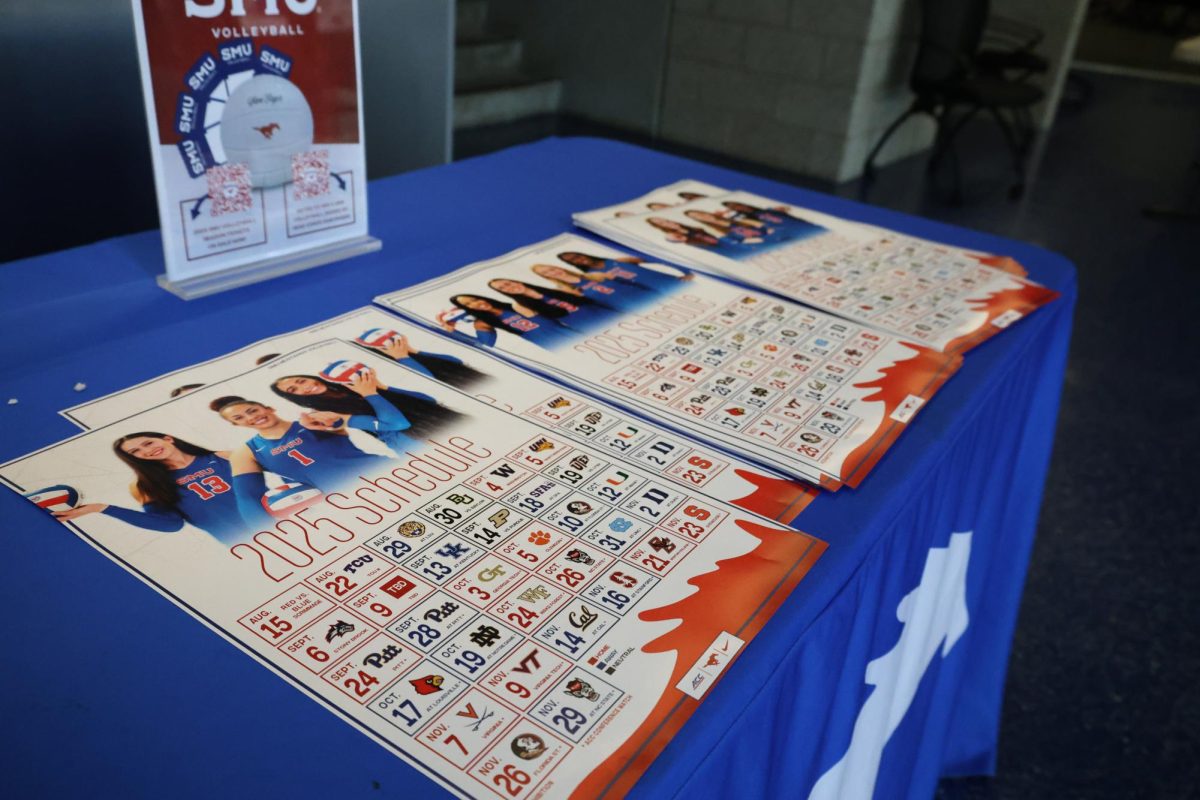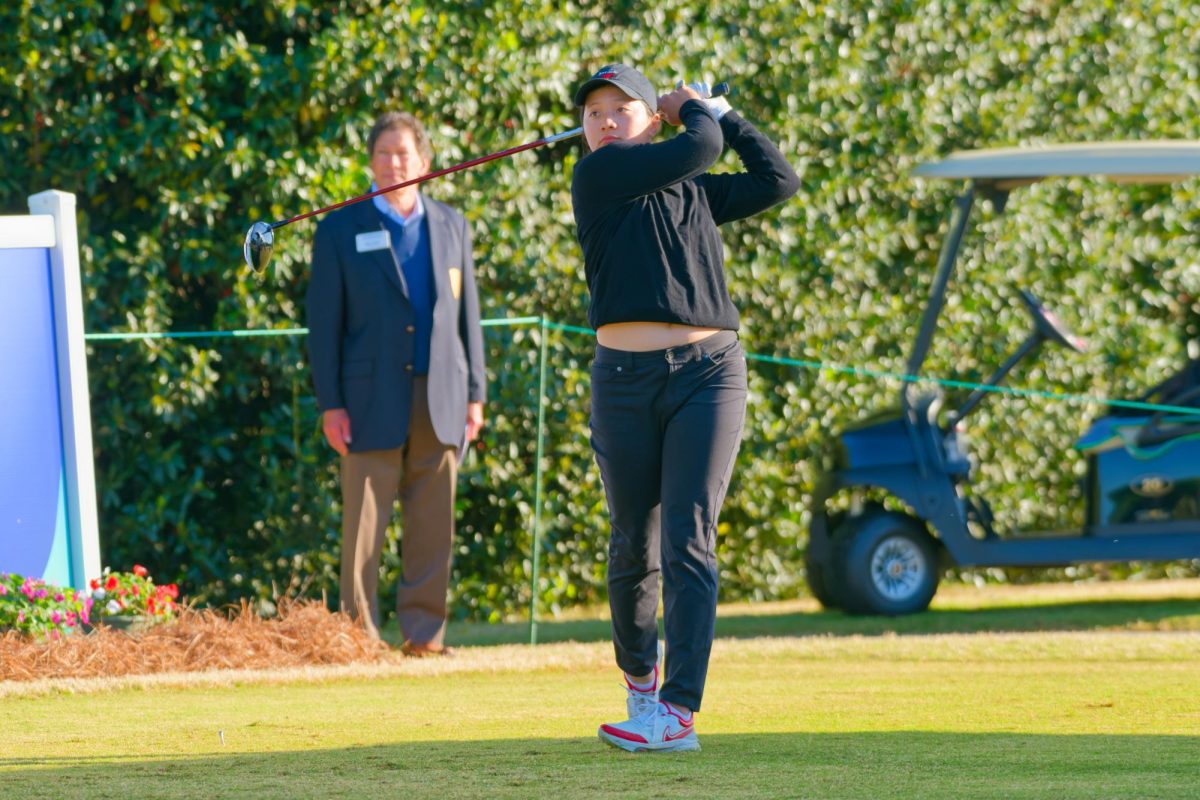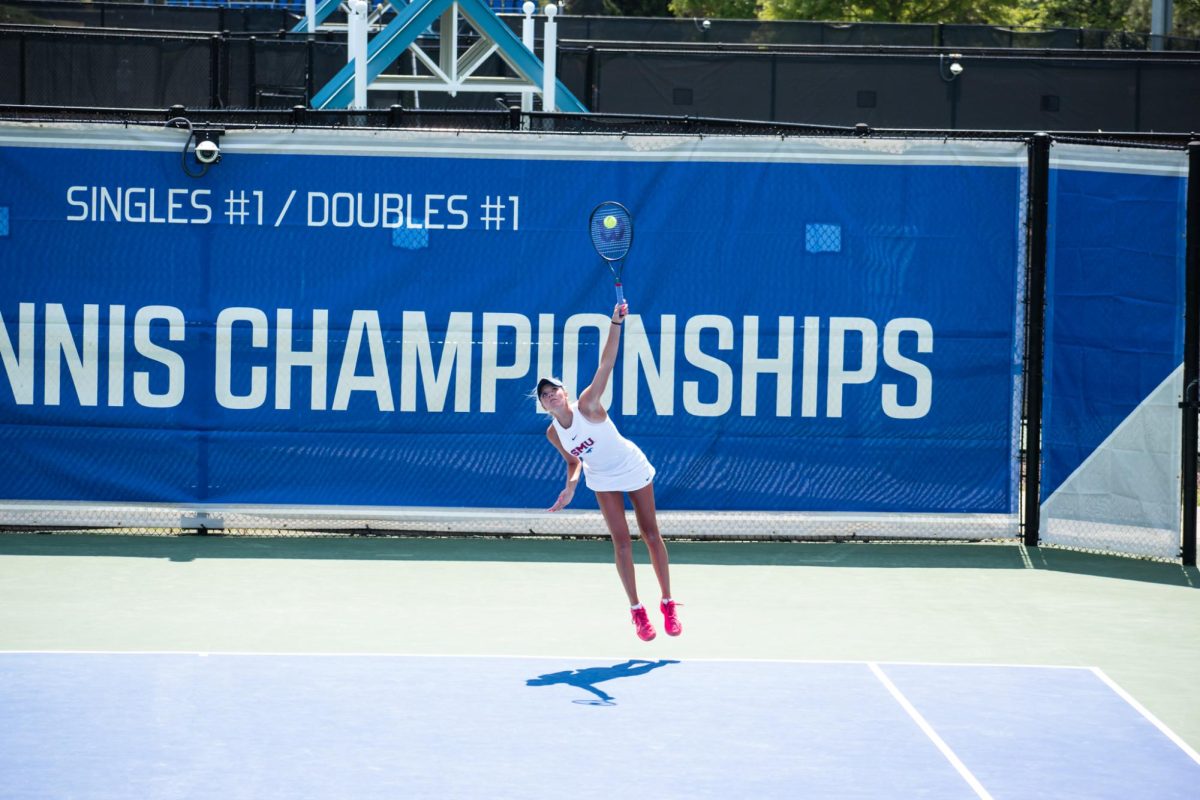Dallas welcomed its first professional women’s soccer team this year, Dallas Trinity FC, with former SMU star Allie Thornton at the helm. Trinity FC joins the Dallas Wings as the only two professional women’s sports teams in the city. Thornton is a forward for Trinity FC and started off the season strong, scoring a hat-trick against Lexington SC and being named to the USL Super League Team for August and September. An Arlington native, Thornton played for SMU for four years before making the move to France for her professional career. She made her American soccer debut in the USL Super League Club in Dallas. It was the perfect opportunity to return as the USL Super League also started this year and Dallas got a club of its own. The Daily Campus had the opportunity to sit down with Thornton on campus to talk about all things soccer and women’s sports.
Daily Campus: Have you met David Beckham?
Thornton: I wish.
Daily Campus: You’ve been playing over there [Europe]. Obviously it’s bigger in Europe than it is in the United States. How do you think the momentum will continue to build up in the United States?
Thornton: Yeah, so I think it’s interesting. I think that’s a cool point to make, too that it’s bigger in Europe, which I actually think, in a lot of ways, yes, soccer in general is, but I think with the American mindset … we’re go-getters, we want to make everything the best it could possibly be, whereas in Europe, they are a little more hands-off with things. I played for clubs that had a very big men’s side, but they heavily favored the men. I think the Title IX concept was more evident there, because no one was really willing to speak up for the equality of women. I think since people are so vocal here, we want to be equal, we want to be paid the same, we want the same facilities, I almost think it’s bigger here now, because everyone is fighting for it so hard. Whereas over there it’s like, we just want to play. We don’t really care if the guys are better, if the guys get more, we’re really just here to play, which I respect a lot.
Daily Campus: What’s the dynamic of bringing European coaches on American soil for the first time?
Thornton: It’s so different what American soccer players value and what European soccer players value, because really, from an American standpoint, ‘We want to be the fastest, we want to be the most visible, we want to be the hardest working,’ which I think are so important. But then in Europe, it’s like, ‘Well, we want to be the most technical, we want to play the prettiest soccer, we want to just be super clean in our passes,’ and you kind of miss out on the more athletic side of it. When you have a team that’s made up of mostly Americans, but then you bring in European coaches, you’re really combining both ends of the spectrum and making just like, a super dynamic team. And so we’re obviously still valuing the athletic and physical side of it, but then they want to play really pretty soccer, and so I think it’s just a cool dynamic, and it just makes us way more versatile as a team.
Daily Campus: What are your thoughts on women’s sports and soccer being more of a movement, not a moment? How have you seen that play out?
Thornton: I think it’s super cool. I think for me, as a kid, you love the idea of being a professional soccer player, but I don’t know if this is actually a possibility to be one, because even the U.S. Super League is super new. And yes, the Women’s National Team has always been around and has always been successful, but it wasn’t so much of a movement, like you said, it was kind of just okay, they’re just there. I think it probably started with the fight for equal pay that the women’s national team did. And I think it’s just been so cool to see how the women’s game has evolved all around the world. Being in Europe for five years, you see how many teams are out there. The fact that I’m 26, almost 27, probably 20 years ago, it wouldn’t have even been a possibility for me to go to Europe to play. But now, we’ve made so much progress in 20 years. It’s such a common thing now for girls to just go all around the world and play, and now having a whole new league in the states, it’s just so much opportunity out there now. It’s awesome, and I’m all for it.
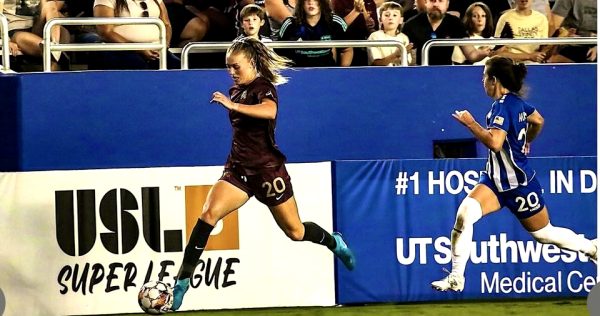
Daily Campus: What do you say to girls that are now seeing this [professional soccer] as an option?
Thornton: I think my biggest piece of advice would just be, go for it. Fortune favors the bold and at the end of the day, if there’s any type of hesitation or nerves, I think you don’t really know until you try. Now with the NWSL, the USL, and the summer version of USL, there’s just so many different pathways you can take. Test your luck. Networking is such a big thing on the corporate world side of things, but networking is just as big of a thing in the sports world, because Chris [Petrucelli] was the general manager who recruited me to come here [Dallas Trinity FC], and he was my coach at SMU. Get your name out there in any way that you can, whether it’s talking to people, using your resources, sending your resume, your video out to whoever. Be overly optimistic and opportunistic.
Daily Campus: Nielsen TV ratings have been up for women’s sports everywhere. The Olympics helped with that. How do you feel the impact of that? Do you feel it on the field?
Thornton: I don’t know if I’m necessarily feeling the impacts of that yet, but in our league all of our games are streamed on Peacock, which I think is cool, because, at least in my experience, especially being in Europe, you’re having to dig deep into the web to try and find a game on TV. But here, Peacock, is something that so many people already have, and the fact that it’s so readily available to watch, goes back to the point you just made. As a player, I don’t know if I’ve felt that direct effect yet, but I think I probably will over time.
Daily Campus: Did you feel the impact of increased ticket sales and energy in the stadiums in Europe, and do you think that’ll be a big game changer in Dallas?
Thornton: In our onboarding meetings here, that was a big thing on how essentially from an organizational standpoint, how are they kind of defining success? And a lot of that is ticket sales and positive feedback in regards to fan experience and all the stuff that that entails. I think it really is kind of a cycle. People will come if the team is doing well, and the team does well if more people come, especially when you’re playing in a stadium like the Cotton Bowl, which is 90,000 people. We’re never going to sell it out and we know that. But if you can get one half full, all it does is add to the atmosphere and the energy in the stadium, as players, we feel that. So then it’s like the chicken or the egg, do the fans come first or does team performance come first? The environments I played in in Europe had a full stadium, but then you would go to some teams that had stadiums and 100 people would come, there’s just crickets the whole game. It’s just so much glue when you have the fans there. I definitely feel a difference when the atmosphere is lively.
Daily Campus: What are your thoughts on the NIL deals?
Thornton: I will start by saying, I’m glad I got out when I did, just because it’s so complicated. I think it’s awesome that players are being paid for what they’re doing in college. I just don’t think it needs to be taken this far, because now, being out of school for five years, that’s not that long. Given how much it’s changed in the college environment, it feels like much longer. College is not the time where you need to be making your decisions based on, ‘How much money are you guys paying me?’ I came in looking at the quality of the coaches, the quality of the team, trying to gauge the team environment and really wanting to make my four years the most positive experience it could be. Now people are just making the decision based on how much money they give, but then they’re hating their college experience. And to me, college is about the experience, it’s not about the money. Maybe I’m old fashioned, but that’s not what college is in my opinion.



